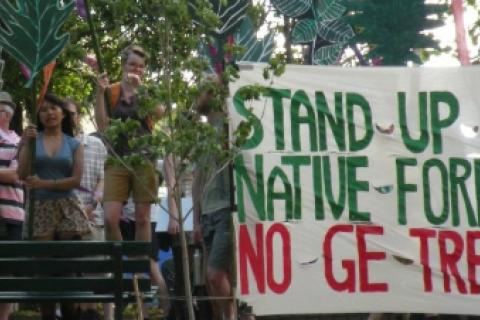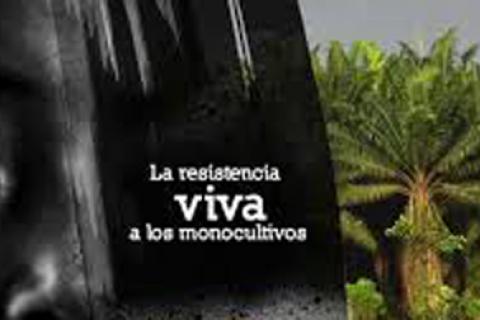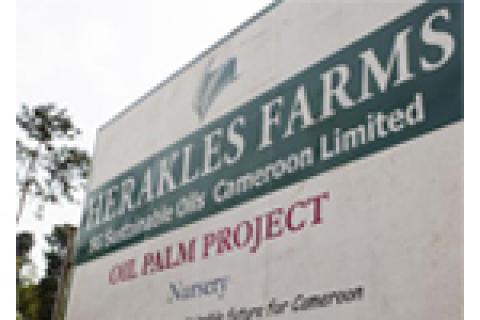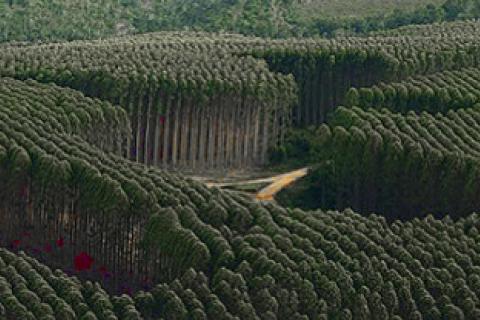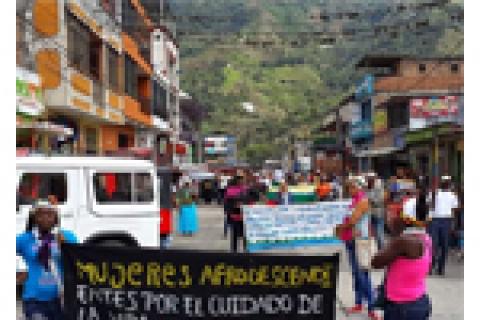A new report by EJOLT, an alliance of academic and activist groups struggling for environmental justice, analyses the increasing global biomass trade and highlights its impacts. The report examines the global evolution of food production and international food trade and identifies related drivers of socio-environmental conflicts.
Other information
The Global Alliance for Climate-Smart Agriculture was launched on September 2014, at the UN Climate Summit in New York. This alliance is the outcome of years of determination by FAO and the World Bank to get the concept of “climate-smart agriculture” onto the international agenda, together with the ideological context and policies it implies.
The latest Nyéléni newsletter edition shows articles on how peoples across the world are fighting to secure and defend their rights to “natural resources” and the rights of nature, providing valuable information about tools that can be used to strengthen our struggles.
You can download the newsletter (in English) here:
http://nyeleni.org/DOWNLOADS/newsletters/Nyeleni_Newsletter_Num_21_EN.pdf
In an unprecedented and alarming move, the United States Department of Agriculture has given GE tree company ArborGen permission to pursue commercial production of a genetically engineered loblolly pine with no regulatory oversight or environmental risk assessment. In the current plan, the potential impacts to the public or to the environment will not be evaluated. This decision sets a terrible and unacceptable precedent.
Aljazeera’s People and Power TV program released a video on the social and environmental consequences of oil palm plantations in Cameroon, where the government has been trying to attract the palm oil industry by offering a number of incentives.
Decision made in violation of national law and international protocols
March 8, International Women’s Day, is also the launch date of the World March of Women’s (WMW) Fourth International Action. The World March of Women takes place every five years and through it, feminist organizations from every continent give voice to their struggles and demands. The Action is decentralized and comprises demonstrations, street actions, workshops, training events and other activities that will last until October 17.
On December 8, 2014, a group of extraordinary women leaders gathered in Lima, Peru during the UN climate negotiations to speak out against issues of social and ecological injustice, and to share stories and plans of action for building a liveable, equitable world. Indigenous women from different places shared their experiences and struggles.
Radio Mundo Real produced a special program on caring for Nature, highlighting the voices of women from different Latin American organizations who participated in the ANAMURI congress.
Listen to the program (in Spanish) at:
http://radiomundoreal.fm/8114-la-tierra-es-madre
An article by Charo Rojas, Marilyn Machado, Patricia Botero and Arturo Escobar charts the cumulative processes that have infringed the rights of Afro-descendant populations and destroyed their territories. These processes, they say, are of such magnitude that they may be regarded as crimes against humanity, ecocide and ethnocide.
The video by Radio Mundo Real on Financialization of Nature was produced in collaboration with the Biodiversity Alliance, Friends of the Earth Latin America and the Caribbean and the World Rainforest Movement. The video attempts to explain what financialization of nature is, what mechanisms it employs, what it does in the territories, its impacts and the resistance it generates.



